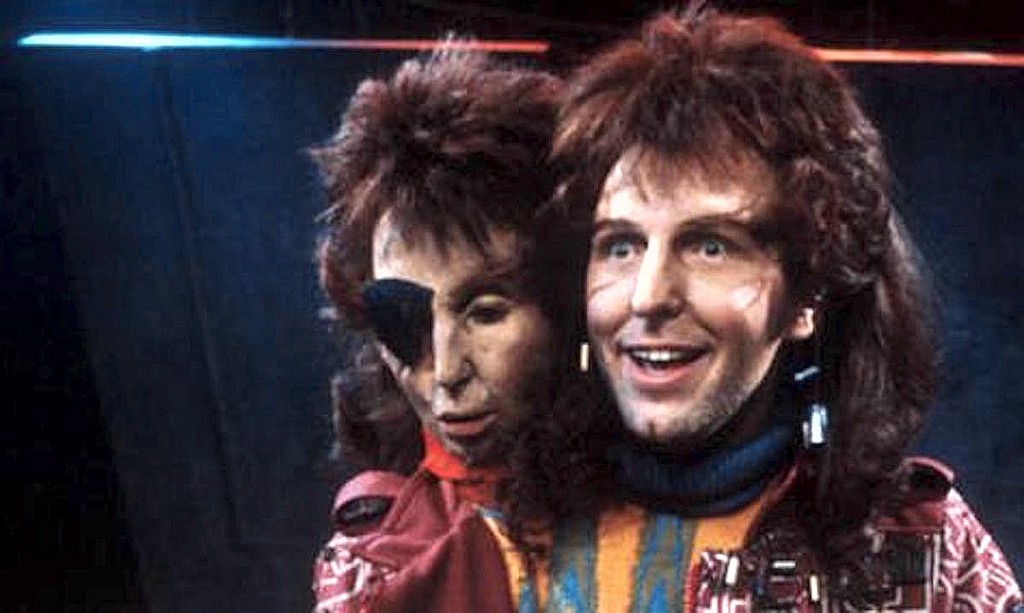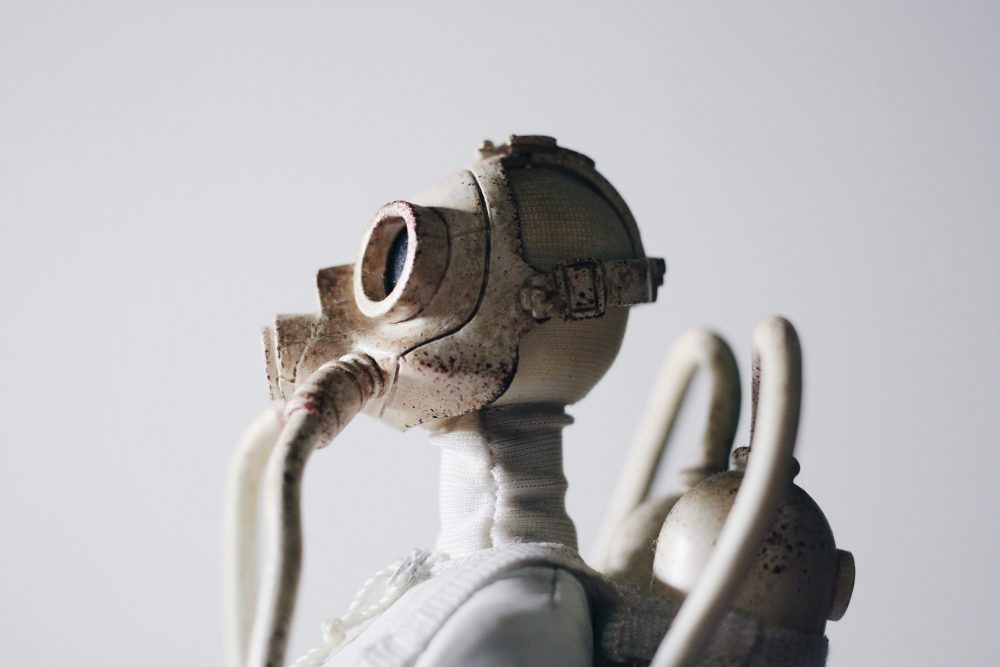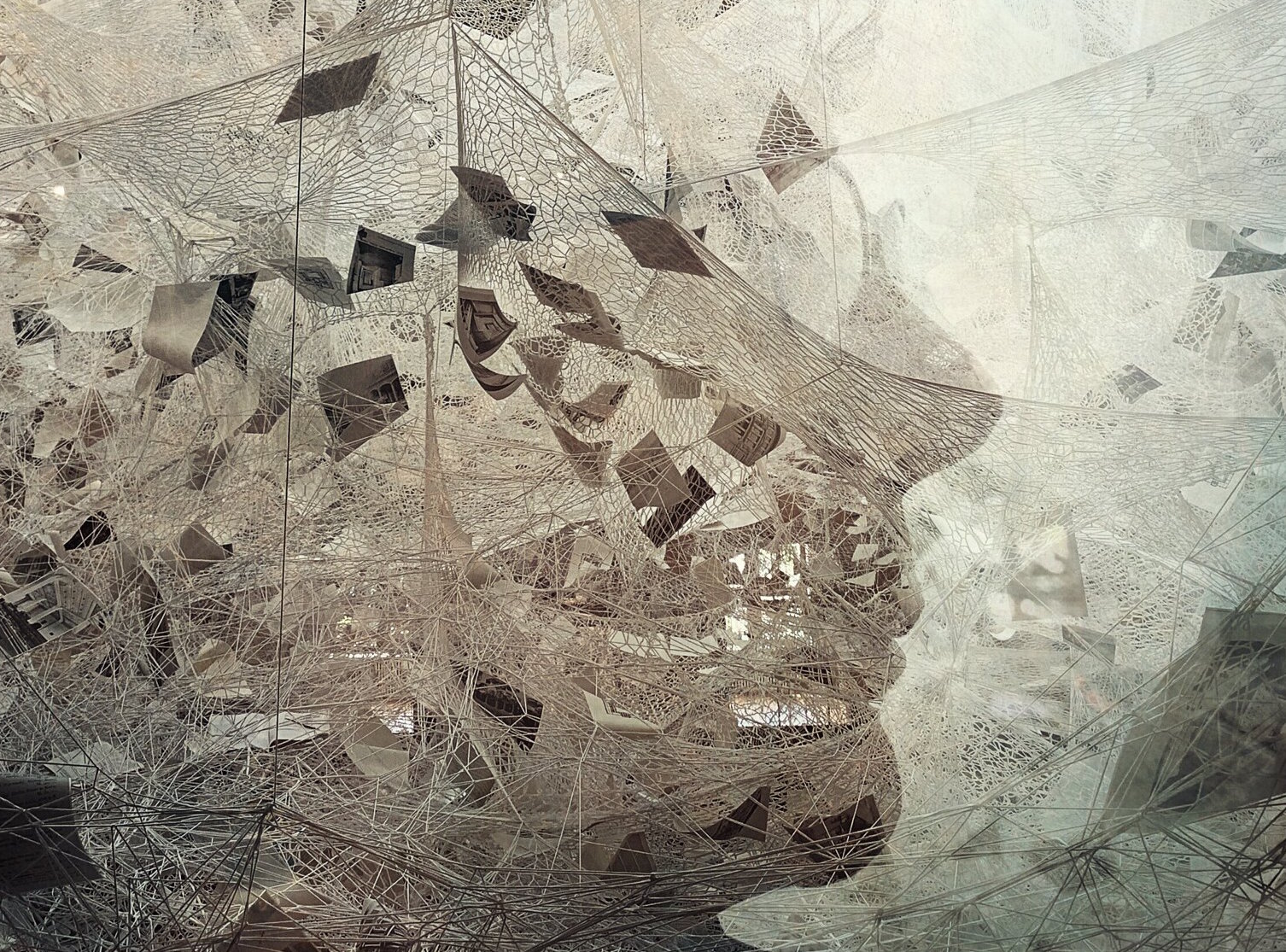Books & Culture
Zaphod Beeblebrox for President
What “The Hitchhiker’s Guide to the Galaxy” can teach us about entertainer presidents—and why they won’t work in this universe

It probably started with Ronald Reagan, the actor-turned-president—or, if you take Douglas Adams’ word for it, the terrifyingly dangerous extraterrestrial-origin synthetic person.
Reagan didn’t jump right from Hollywood to the presidency; he spent a long time as governor of California, and even as an actor he was also a union leader. (Ironic, huh? He wasn’t a Republican back then.) But he was the harbinger of a genre of celebrity politicians, with ever-shorter gaps between their artistic and political careers. These entertainer-leaders leveraged studied charisma, name recognition, and fanbases built in a much more exciting arena than government to achieve political success. A Sonny Bono, an Arnold Schwarzenegger, and an Al Franken later, here we are: The president has never held any previous office but did host an embarrassing reality show, and as soon as Oprah Winfrey gave one rousing speech people started clamoring for her to run for the highest office in the land. (She might do it, too.)
As with almost everything else of note in the galaxy, Douglas Adams saw this coming 92 million miles away.
The Galactic President in Adams’ Hitchhiker’s Guide to the Galaxy series is the two-headed, three-armed Zaphod Beeblebrox — erratic, irresponsible, wildly egomaniacal, voted Worst-Dressed Sentient Being in the Known Universe seven times. Zaphod has more charisma than Trump and less poise than Oprah, but as politicians they’re three of a kind: They’ve been rocketed to power not by their background in statecraft, but by their inescapable celebrity.
In the case of Oprah and Trump, this is due to a major flaw in American politics known as “the American people.” The thirst for celebrity politicians—the urge to transplant prominent entertainers into other influential roles regardless of background or skill—is a function of our short attention spans and lack of respect for experience or knowledge. When we see someone we recognize projecting authority, charm, or oratorial skill, we cry “make them president!” with a joking fervor that is indistinguishable from the real thing.
Zaphod has more charisma than Trump and less poise than Oprah, but as politicians they’re three of a kind.
In Zaphod’s case, though, it’s actually the goal. The purpose of his position, though he isn’t supposed to know it, is distraction. “Only six people in the galaxy knew that the job of galactic president was not to wield power but to attract attention away from it,” Adams writes. “Zaphod Beeblebrox” — who, as is revealed in the Hitchhiker’s Guide radio show, has made presidential addresses from the bath, from prison, and from a sex worker’s bedroom—“was amazingly good at his job.”
Like many of Adams’ great innovations, it’s a joke that’s also a sly critique that’s also a genuine perspective shift likely to disrupt your worldview forever. Once you’ve internalized the gag, it’s impossible not to think about it every time a president does something showy, even if it’s as gentle as playing basketball in mom jeans. What if his job right now is not to wield power but to attract attention away from it? you wonder. We’d never know. This is doubly true when the president is a grandiose blowhard obsessed with the size of his TV ratings and perpetually starting petty, awful feuds. It’s triply true when the president isn’t a president or even a candidate, but simply an eloquent celebrity who gave a stirring and morally upright speech and was immediately cast as the Savior of Our Embattled Government. Do we want Oprah to bring dignity back to the White House, or do we simply want her to distract us until we forget where real power lies?
It’s a comforting thought, in all honesty—at least it is now, when our president is a sub-Beeblebrox buffoon. (Zaphod’s not in control of his faculties either, and he spends most of his presidency as a criminal fugitive, but at least he’s clever.) What if Obama’s statesmanship and Trump’s shenanigans had exactly the same amount of influence on actual policy: zero? Deflationary for Obama, to be sure; by Galactic President standards he’d be considered deeply mediocre, always reading and working and eating seven almonds instead of putting on a show. But in the Trump era, it’s actually nice to think that the president might be a flashy figurehead, his vaunted “button” just a pacifier. He can strut and howl and posture all he likes, but there’s somebody else in charge.
And maybe that’s why we’re so eager to cast votes for Oprah—or, for that matter, The Rock. “She has no governing experience,” I saw people scolding when the “Oprah for office” fervor took hold, and others responded: “Well, look at the guy we have now.” If the presidency is going to be reduced to pure spectacle, we seem to be saying, let’s at least fill it with someone we can watch without feeling sick.
But of course, the presidency isn’t pure spectacle, now or in the future. That’s the difference (well, one of the differences) between Adams’ universe and ours: The president may be a clown, but he’s not supposed to be one. He still has a job, a real one. And while there are plenty of shadowy influencers behind the scenes, they’re people like the Mercers and Vladimir Putin and lobbyists: corrupt opportunists out for personal gain. If the president can’t be trusted to wield real power, you can bet that the people his antics are covering for are even worse.
In Adams’ world, when the president attracts attention away from “real power,” that means a single source of responsible and lucid (if eccentric) leadership. “It is a well-known fact that those people who most want to rule people are, ipso facto, those least suited to do it,” Adams writes. Thus we have had “a succession of Galactic Presidents who so much enjoy the fun and palaver of being in power that they very rarely notice that they’re not. And somewhere in the shadows behind them — who? Who can possibly rule if no one who wants to do it can be allowed to?” It’s a conundrum, but a solvable one; this is, after all, a world in which Life, the Universe, and Everything has an answer, even if we don’t know what it means. (N.B. for anyone who hasn’t read the books: it’s 42. Suddenly a lot of things nerds have been saying make a lot more sense to you, don’t they?) The power the capering president distracts from is the single person who can be trusted to rule.
Eventually we meet him: a man living alone, save for a cat, in a shack on a planet on the outskirts of some distant galaxy. The Man in the Shack is so relentlessly skeptical that he ceases to believe in the outside world when the door is shut. Lesser leaders ask him questions, and he answers in his idiosyncratic way (“My Universe is my eyes and my ears. Anything else is hearsay”), and they act on his answers. But he isn’t interested in ruling people; he isn’t even sure people exist. (“Do you rule the Universe?” Zaphod asks him. “I try not to,” he says.) The universe, Zaphod decides, is in good hands.
Our universe is not.
The entertainment president requires a solid backing: known or unknown, someone in the shadows who can rule when no one who wants to can be allowed. At the very least, he or she requires a solid clockwork of advisors, officials, and legislators—all of them knowledgeable, all of them functioning, all of them practiced and proficient enough to keep the system running when the person who’s nominally in charge is really only there for show. What is a figurehead without a ship?
The entertainment president requires a solid backing: known or unknown, someone in the shadows who can rule when no one who wants to can be allowed.
I wish we could have a Zaphod Beeblebrox president, one whose antics can be safely enjoyed because they’re only there for show. I would be perfectly happy to live in a country that could anoint its favorite celebrity as its public face and let governing take care of itself. It works beautifully in Hitchhiker’s Guide; Zaphod gallivants around the galaxy, doing telecasts from the bathtub and stealing multiple ships and getting eaten by a carbon copy of the Ravenous Bugblatter Beast of Traal, and meanwhile the Man in the Shack keeps everything quietly ticking along. It’s fun and functional. It’s also science fiction. We know, precisely because of how well it works in that universe, that it can never work here.
We wish for a Zaphod Beeblebrox because we want to believe in a Man in the Shack: someone who can be trusted to give us direction, even if we’d never understand their methods, even if we’ll never be allowed to see. But in real life, there is no weird grownup in charge. Those people who most want to rule people are, ipso facto, those least suited to do it, and somewhere in the shadows behind them — nobody.








